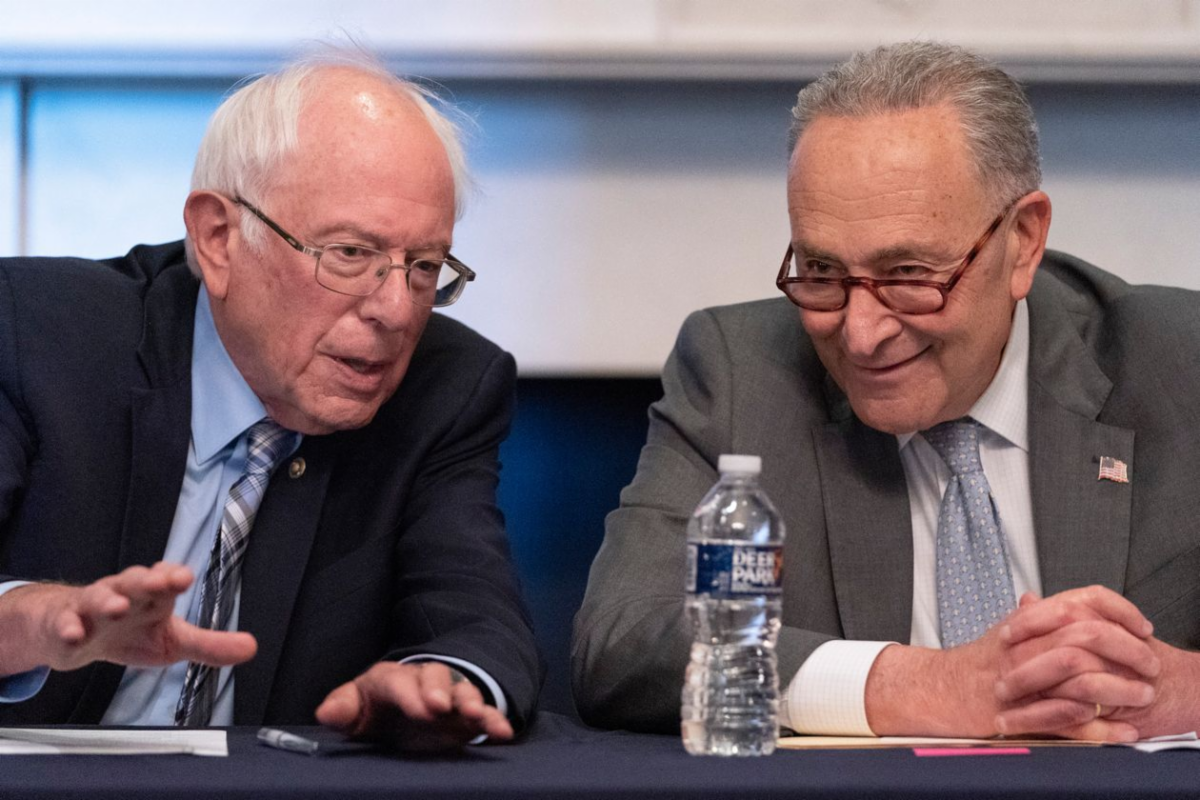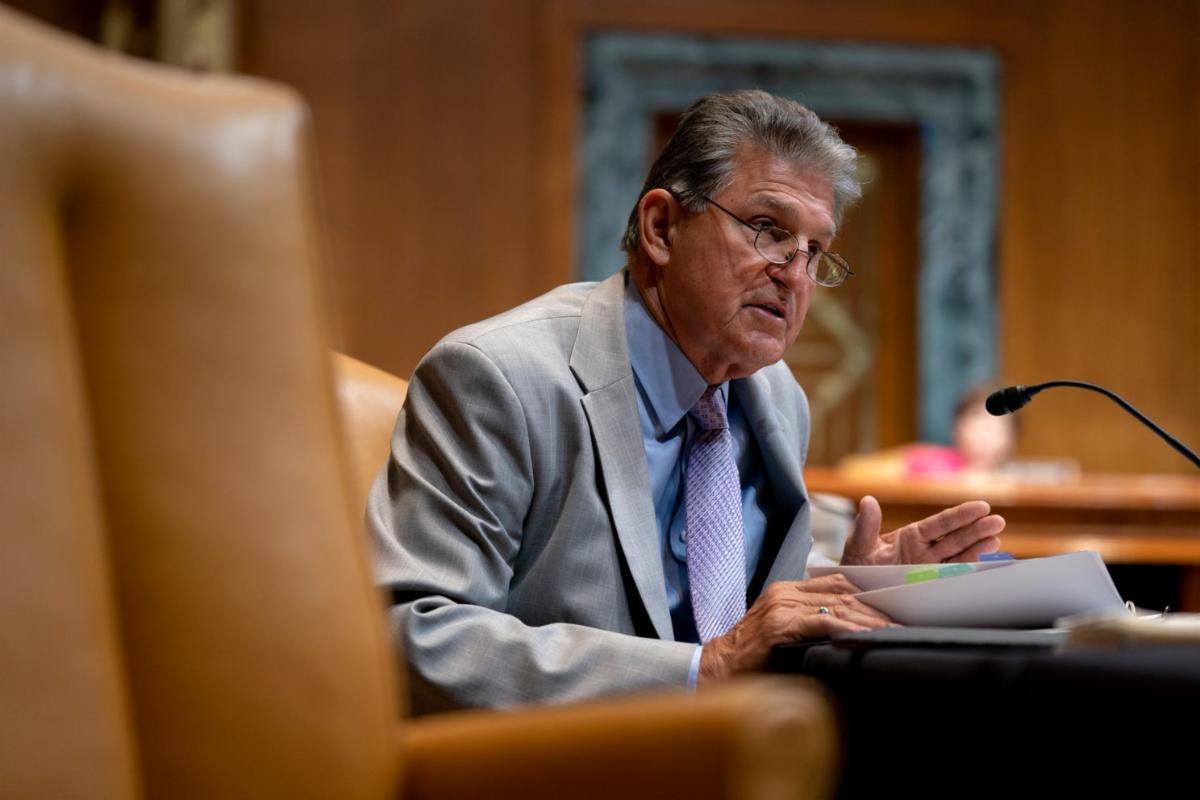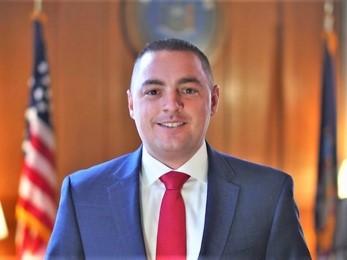Good Morning from Washington, D.C.
While President Joe Biden was in Geneva last week, infrastructure talks continued—including back to back meetings on Capitol Hill throughout the week for White House advisors. Currently, the Administration and their Congressional allies are pursuing two different possible paths: while continuing to work toward a bipartisan deal, they are also moving forward with plans to go it alone, without Republican support.
meetings on Capitol Hill throughout the week for White House advisors. Currently, the Administration and their Congressional allies are pursuing two different possible paths: while continuing to work toward a bipartisan deal, they are also moving forward with plans to go it alone, without Republican support.
As far as a bipartisan deal, the number of Senators supporting the package that we discussed in last week’s Monday Morning Memo has grown to 21—and now includes key Biden allies Senator Chris Coons of Delaware, Senator Angus King of Maine, and John Hickenlooper of Colorado, as well as Republican Senators Todd Young of Indiana, Thom Tillis of North Carolina, Lindsey Graham of South Carolina, and Jerry Moran of Kansas. Senate aides say the current draft is not final, but it does include some controversial methods of funding the plan—including indexing the gas tax to inflation, increasing IRS enforcement on unpaid taxes, an electric vehicle fee, and repurposing of existing federal funds (including unspent COVID relief money). While support in the Senate grows, those proposed “pay fors” could stop the proposal dead in the House. House Speaker Nancy Pelosi (D., Calif.) said during a press conference Thursday that she would be opposed to repurposing money designated for Covid aid or raising the gas tax to pay for an infrastructure package. “I do not think we should be taking money out of the pockets of people on unemployment or take money out of the rescue package because it’s there for a purpose. But let’s just see what it is,” Pelosi said.
While the bipartisan deal gains steam, progressive Senate Democrats—with the support of Senate Majority Leader Chuck Schumer—began to flesh out the details of their own $6 trillion (!) plan. Still in discussion drafts, the proposal would advance key elements of Biden’s infrastructure plan along with additional spending targeting climate change and health care. The package would open the door to a number of Democrats’ priorities that are considered non-starters for Republicans in negotiations, including rollbacks of former President Trump’s 2017 tax cuts, lowering the Medicare eligibility age to 60 from 65, expanding the Child Tax Credit, and implementing universal paid leave and Pre-K. However, the proposal may have a tough time even getting to the 51 votes necessary to get it passed through budget reconciliation. Moderate Democrats including Senators Mark Warner of Virginia and Joe Manchin of West Virginia, who are actively working on the bipartisan deal, immediately expressed deep reservations last week. “There are going to be some hard conversations inside the caucus about what’s aspirational versus what’s real. I made it very clear that there are a lot of things that the president laid out. There are categories that I approve of. Some of the numbers I don’t approve of,” Warner said last week.
universal paid leave and Pre-K. However, the proposal may have a tough time even getting to the 51 votes necessary to get it passed through budget reconciliation. Moderate Democrats including Senators Mark Warner of Virginia and Joe Manchin of West Virginia, who are actively working on the bipartisan deal, immediately expressed deep reservations last week. “There are going to be some hard conversations inside the caucus about what’s aspirational versus what’s real. I made it very clear that there are a lot of things that the president laid out. There are categories that I approve of. Some of the numbers I don’t approve of,” Warner said last week.
Senate Majority Leader Chuck Schumer is trying to balance moderates in the Caucus with progressives—who, over the past few weeks have been calling on him to abandon bipartisan talks and move forward with a larger package. Schumer huddled with both moderate Democrats pushing the bipartisan package as well as Senate Budget Committee Chair Bernie Sanders of Vermont, who is leading the charge on a $6 Trillion package that would likely have to be passed through reconciliation, last week. “Discussions about infrastructure are moving forward along two tracks. One is bipartisan. The second deals with components of the American Jobs and Families Plan, which we will consider even if it lacks bipartisan support. Yesterday, I convened all 11 members of the Senate Budget Committee to discuss the reconciliation track and today I will convene the group of Democrats negotiating with Republicans to discuss the bipartisan track,” Schumer said from the Senate Floor last week.
Back in New York…
All eyes are on primaries this Tuesday, June 22nd. There are several key races to watch, including the New York City Mayoral and Comptroller Races—which will be the largest races with Ranked Choice Voting in American history, and several races for Borough President in New York City. Upstate there are competitive primaries for Mayor in Albany, Buffalo, Rochester, and Syracuse that you will want to keep an eye on… just to name a few. In addition to major implications on local politics, the local races this year have a potential to cascade into a number of Special Elections for the State Legislature—Senator Kevin Parker and Brian Benjamin, and Assembly Member David Weprin are running for New York City Comptroller; Senator Brad Hoylman is running in a crowded field for Manhattan Borough President; Senator Luis Sepuldveda is running for Bronx Borough President; and Assembly Member Jo Anne Simon is running for Brooklyn Borough President.
City Mayoral and Comptroller Races—which will be the largest races with Ranked Choice Voting in American history, and several races for Borough President in New York City. Upstate there are competitive primaries for Mayor in Albany, Buffalo, Rochester, and Syracuse that you will want to keep an eye on… just to name a few. In addition to major implications on local politics, the local races this year have a potential to cascade into a number of Special Elections for the State Legislature—Senator Kevin Parker and Brian Benjamin, and Assembly Member David Weprin are running for New York City Comptroller; Senator Brad Hoylman is running in a crowded field for Manhattan Borough President; Senator Luis Sepuldveda is running for Bronx Borough President; and Assembly Member Jo Anne Simon is running for Brooklyn Borough President.
Though Session is in the rearview, amidst larger reopening, Governor Cuomo reopened the State Capitol and Legislative Office Building Complex to the public effective last Friday. The call was not without some criticism: many wondered why the Governor waited until a week after session to make the move. Republican state lawmakers had urged the Cuomo administration to reopen the building for the final weeks of the legislative session. Assembly Minority Leader Will Barclay called the reopening announcement “long overdue, and said that, “the public’s presence and voice plays an integral role in the functioning of state government and they never should have been excluded,” Barclay said. “It is a shame that the building remained closed during the entire legislative session.” Nonetheless, we are very excited to return to our normal in-person routine for the first regular legislative session in nearly two years in 2022!
Legislative Office Building Complex to the public effective last Friday. The call was not without some criticism: many wondered why the Governor waited until a week after session to make the move. Republican state lawmakers had urged the Cuomo administration to reopen the building for the final weeks of the legislative session. Assembly Minority Leader Will Barclay called the reopening announcement “long overdue, and said that, “the public’s presence and voice plays an integral role in the functioning of state government and they never should have been excluded,” Barclay said. “It is a shame that the building remained closed during the entire legislative session.” Nonetheless, we are very excited to return to our normal in-person routine for the first regular legislative session in nearly two years in 2022!
FOR DAILY UPDATES, FOLLOW US:
client news
Senator Kennedy Joins Cheektowaga Leaders to Announce Additional $1 Million in State Funding for Sewer Improvements
Senator Tim Kennedy joined Town of Cheektowaga Supervisor Diane Benczkowski and Councilman Brian Pilarski to announce that an additional $1 million in state funding has been secured for Cheektowaga’s ongoing effort to upgrade aging sewer infrastructure and reduce sanitary sewer overflows into Scajaquada Creek. This funding builds on the $20 million in state grants and another $15 million in zero-interest loans that Cheektowaga has already received for sewer improvements.
These Republicans Voted Against Juneteenth. They Still Closed Their Offices On Friday.
Eight Republican members of the House of Representatives who voted against making Juneteenth a federal holiday appeared to give their staff Friday off anyway. [Read more.]
60 Catholic Democrats Accuse Bishops Of Weaponizing Eucharist Against Biden
NYS Legislature: new member spotlight

Senator Mike Martucci
In November 2020, Senator Mike Martucci defeated Democrat Jen Metzger—which was one of two Senate seats that Republicans flipped—to represent the 42nd NYS Senate District, which comprises all of Sullivan County and parts of Orange, Ulster, and Delaware counties. This Session, he is serving as the Ranking Member of the Senate Committees on Mental Health and Developmental Disabilities and Small Business, Commerce, and Economic Development. His policy priorities include eliminating property taxes for our seniors, repealing New York’s recently passed bail reform laws, and fighting for state education aid and other important resources for his Hudson Valley District.



